The current UK assessment system isn’t fit for purpose. It is too narrow, has a negative impact on mental health and labels a third of young people as failures.
In primary school, there are now 5 out of 7 year groups where statutory testing takes place. Arguably the high stakes exam-style testing that occurs in the form of SATs in year 6 is the most damaging on a child’s mental health and self-belief. Campaign group More Than A Score state that 60% of children were worried about taking these tests last May and at SSQ we see the anxiety and pressure the children feel first hand. This should not be the experience of an 11 year old child. Currently, when children reach the end of year 6 they receive a score which translates to a judgement of their ability in reading, writing and maths. These judgements are based on their performance in one of these single exam-style tests during one week in June. Seven years of learning at primary school is summed up in a single standardised score. Does this score give the child the chance to reflect and think deeply about their strengths and next steps in these subjects? Does it give them an opportunity to celebrate their wider successes beyond the core? Does it give them an opportunity to showcase their passions and interests? Does this score enable the child to fully understand who they are?
At SSQ, we wanted to develop a system where we could answer “yes” to the questions above, a system that values more than SATs. We took the opportunity of SATs being cancelled during the pandemic to rethink what the end-of-primary assessment could look like. We set up a working group to explore this, working through a design thinking process in order to create something tangible to use with our children. Following a year of research and through consulting with various stakeholders including staff, parents and the children themselves, we created a digital portfolio template as a way for each young person to capture their learning beyond SATs and to provide a platform to evidence their individual strengths and achievements.
The Contents of the SSQ Digital Portfolio:
The portfolio contains a home page and 6 additional pages -writing, reading, maths, oracy, teamwork and passions.
The portfolio’s home page contains an overview of the child’s learning, achievements, strengths and life goals.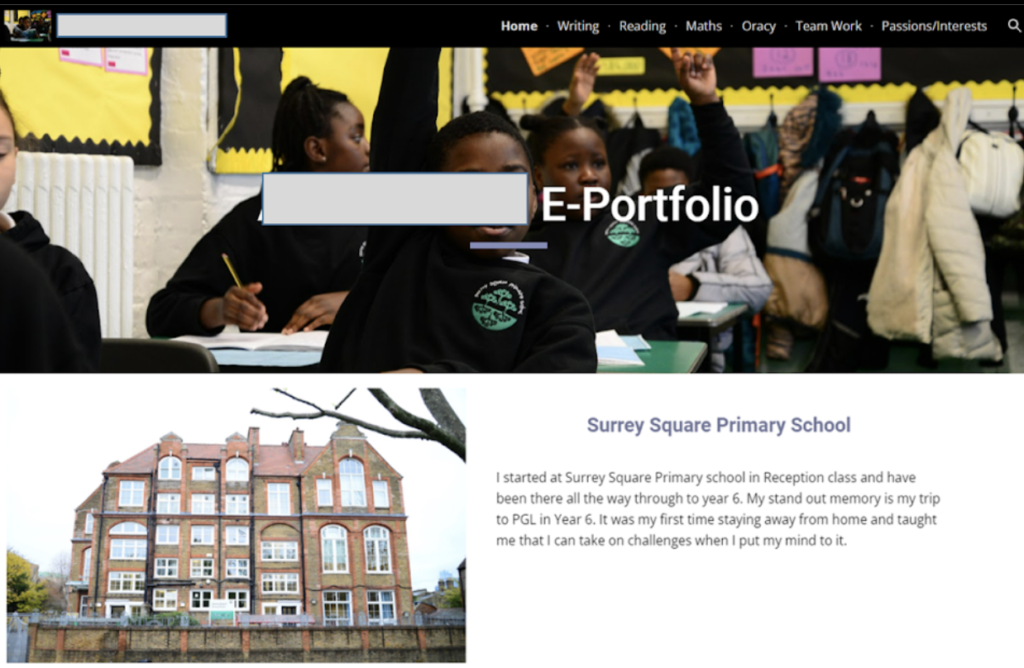
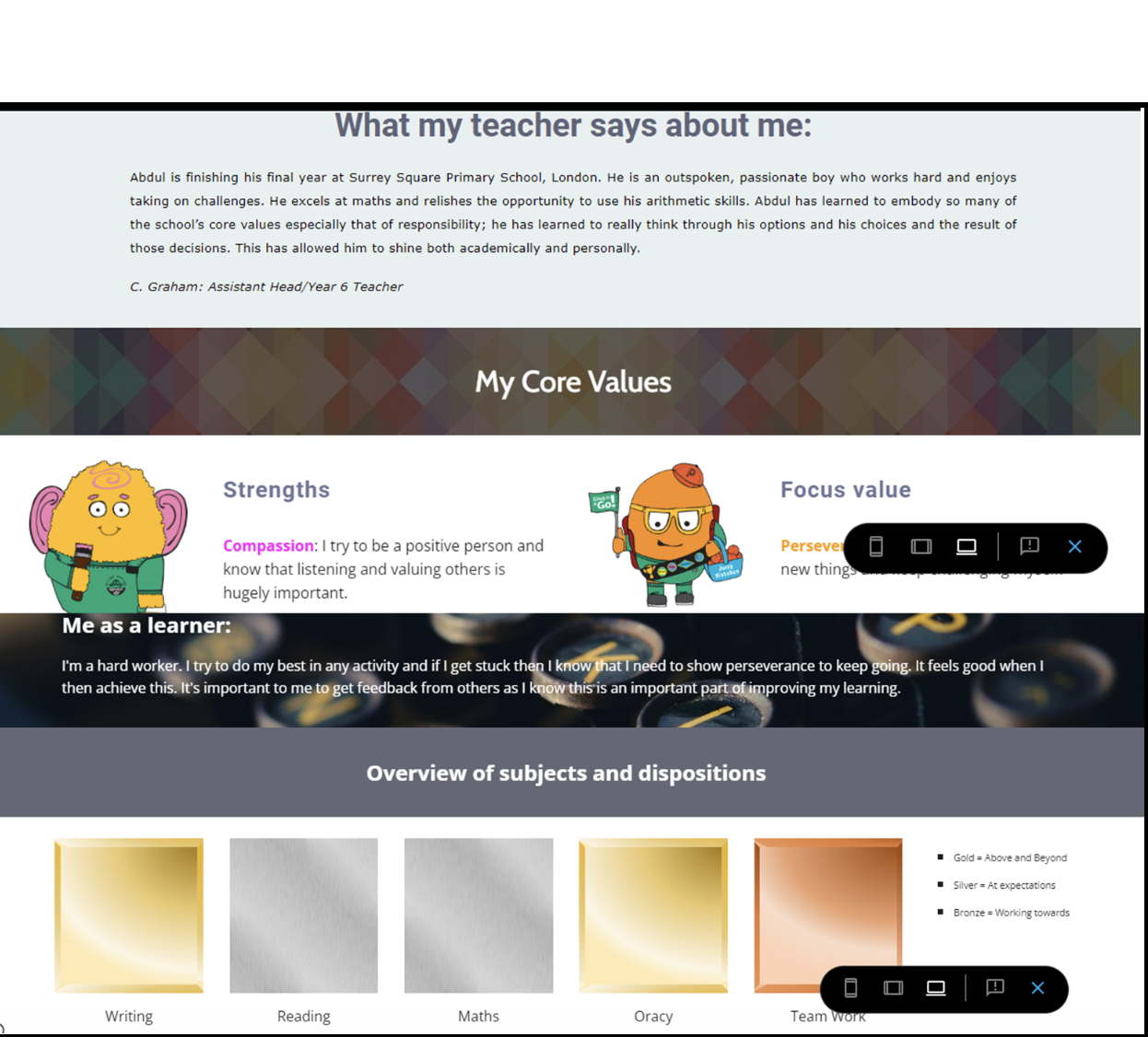
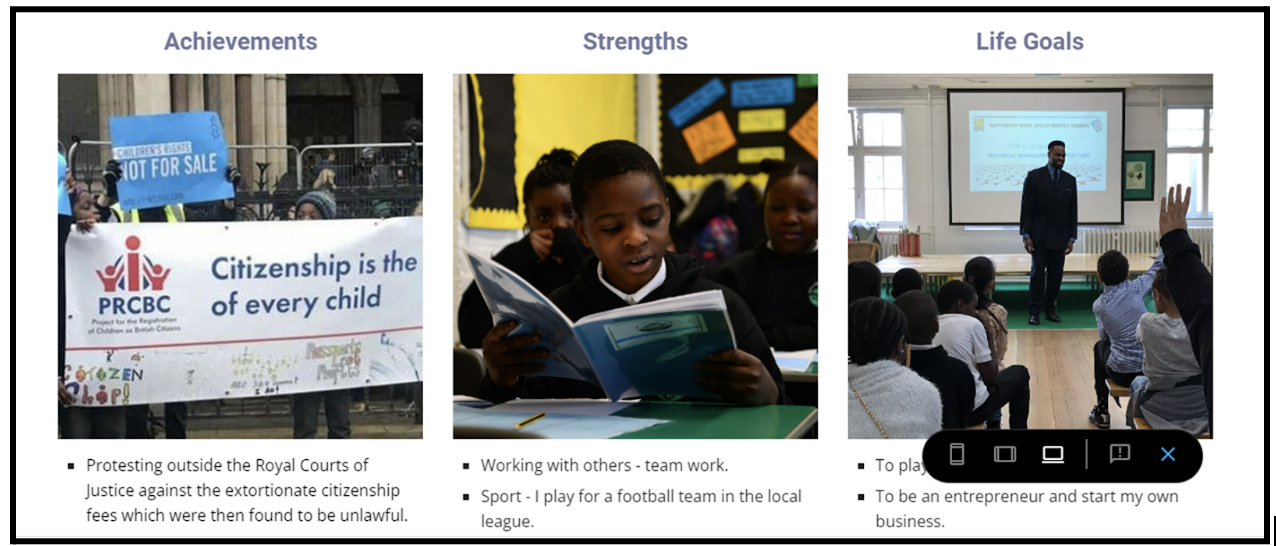
These focus on reading, writing and maths and gives the child a chance to showcase their learning beyond SATs: their top pieces of work, testimonials from teachers and strengths/areas for development in each.
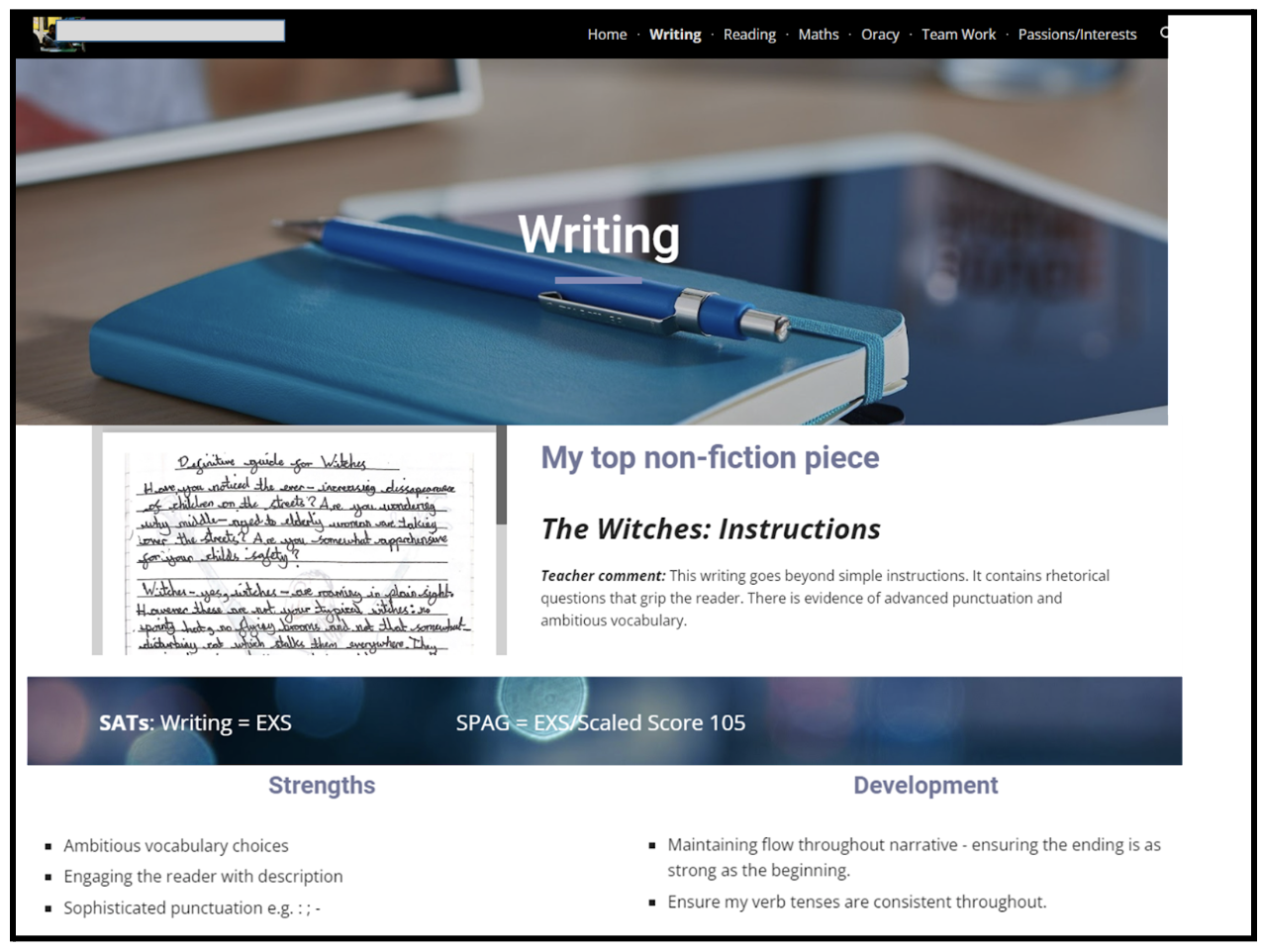
The inclusion of the Oracy and Team Work pages came from the children themselves. These are two areas that they felt were important when transitioning to secondary school – how to communicate and work with others effectively. We also know that these are 2 of the three Cs (communication, collaboration and creativity) that are recognised in curricula across the world as centrally important. We worked with ImpactED to develop ways to assess both teamwork and oracy enabling the children to again identify strengths and challenges in these areas.
This final page gives children a chance to share more about themselves and what they love to do, giving a fuller picture of them as a whole person. Relevant adult testimonials are again included to bring in an additional expert perspective.
Some practicalities:
The children curate the portfolios on googlesites. They independently collect evidence throughout the year giving them autonomy to choose the evidence that they wish to include. The teachers block out time in the curriculum for the children to work on the portfolios, meeting with the children 1:1 to help unpick their strengths and development points in the different areas.
Portfolio Presentations and the impact:
The year ends with the children presenting their portfolios. The children are grouped in 4s and parents are invited to make up a small audience along with the year 6 staff team. Each child presents their home page/profile and one of the other pages of their choice. The audience then asks questions and gives feedback to the child. We did this for the first time in July 2022 and it was a humbling experience for all:
Parents were hugely positive about the presentations, there were even tears from some who were overwhelmed by what their children were sharing and articulating. One parent said:
“It was impressive to see how confident and well-prepared the children were to share their journey in front of an audience – what a great skill to have!”
We believe that the SSQ digital portfolio does answer “yes” to the questions posed at the beginning of this article. It empowers the young person to take ownership of their learning journey, boosting their self-efficacy, helping them to truly reflect on what they have learnt during their time at primary school. I believe that this is something that all schools are able to do and is a way for schools to take assessment reform into their own hands. So why not give it a go now – get onto googlesites and explore creating your own digital portfolio for the children in your school. Give them the tools to enable them to reflect on their learning, to identify all of their strengths and to showcase who they are.
Many educators believe change is needed in how we assess our children. I recently presented to the ICAPE commission, and have worked closely with my colleagues in Rethinking Assessment. Policy change is needed. As a practitioner and leader, I am proud of the work we are doing to make practical changes and improvements for our children and will continue to work to influence policy for the future.
If you are interested in learning more about our work or getting involved you can sign up for the Big Education and Rethinking Assessment newsletters.
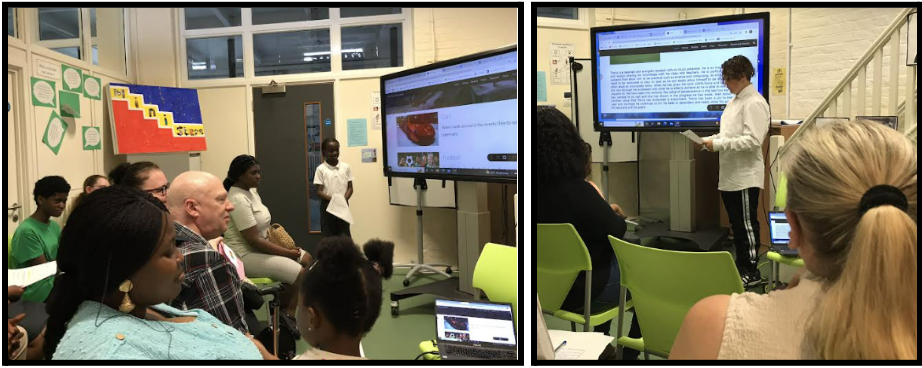

Big Education Trust is a company limited by guarantee registered in England and Wales.
Company registration number: 07648389.
VAT number: GB142676505
Registered Office: c/o School 21, Pitchford Street, London E15 4RZ
Privacy Policy | Terms & Conditions
| Cookie | Duration | Description |
|---|---|---|
| cookielawinfo-checkbox-analytics | 11 months | This cookie is set by GDPR Cookie Consent plugin. The cookie is used to store the user consent for the cookies in the category "Analytics". |
| cookielawinfo-checkbox-functional | 11 months | The cookie is set by GDPR cookie consent to record the user consent for the cookies in the category "Functional". |
| cookielawinfo-checkbox-necessary | 11 months | This cookie is set by GDPR Cookie Consent plugin. The cookies is used to store the user consent for the cookies in the category "Necessary". |
| cookielawinfo-checkbox-others | 11 months | This cookie is set by GDPR Cookie Consent plugin. The cookie is used to store the user consent for the cookies in the category "Other. |
| cookielawinfo-checkbox-performance | 11 months | This cookie is set by GDPR Cookie Consent plugin. The cookie is used to store the user consent for the cookies in the category "Performance". |
| viewed_cookie_policy | 11 months | The cookie is set by the GDPR Cookie Consent plugin and is used to store whether or not user has consented to the use of cookies. It does not store any personal data. |
You’ve read a number of our blogs and we’re delighted you’re interested in our work.
Become a member for FREE and enjoy…